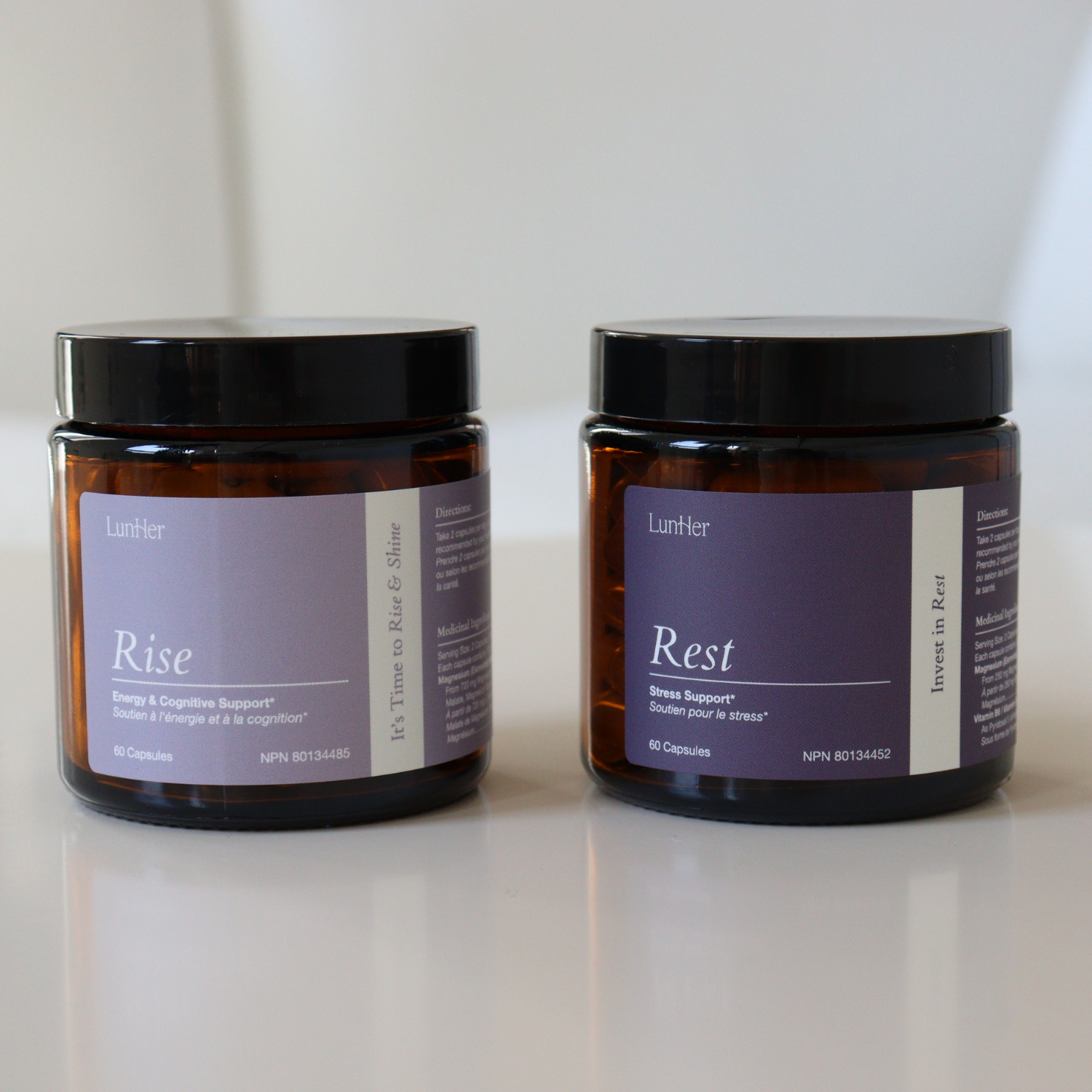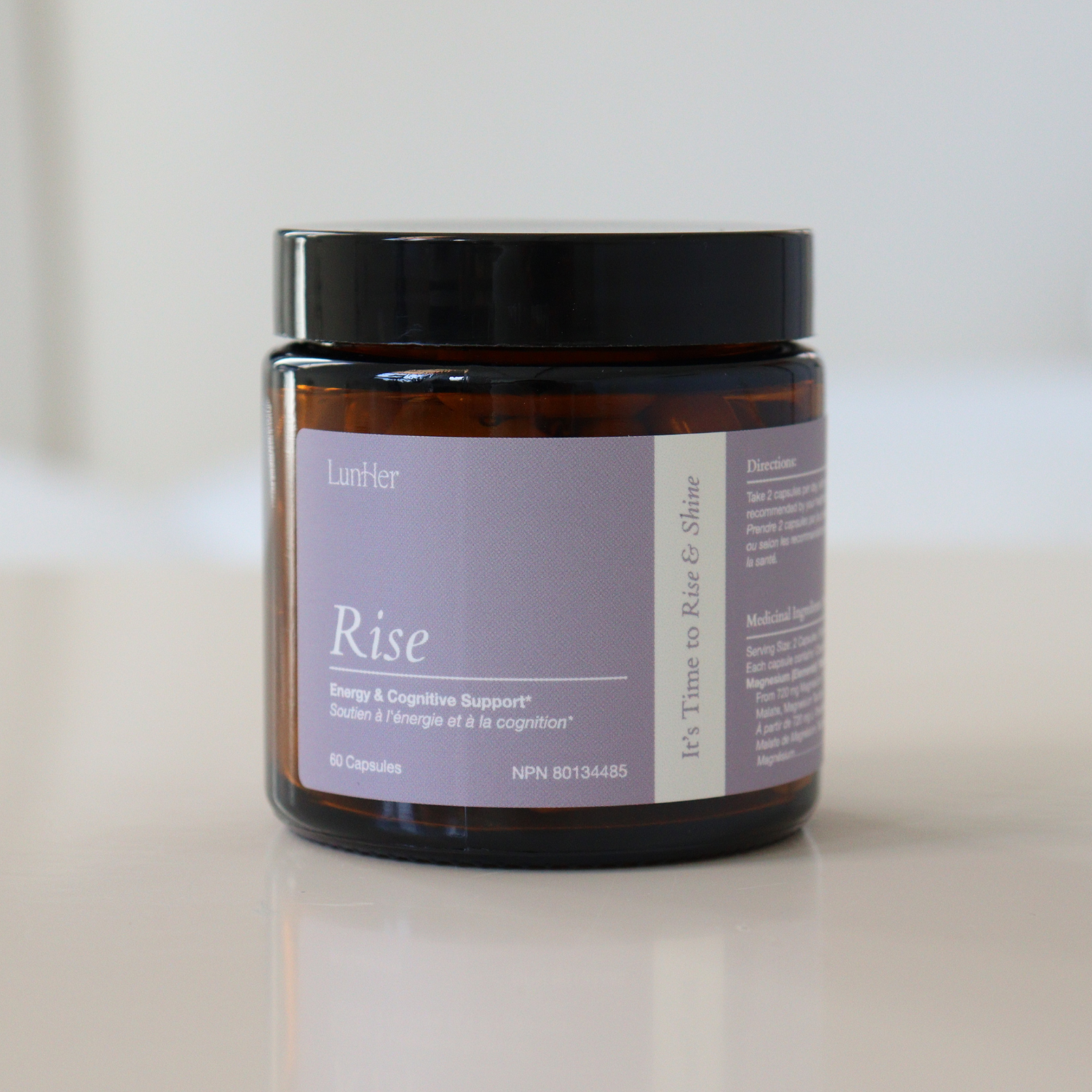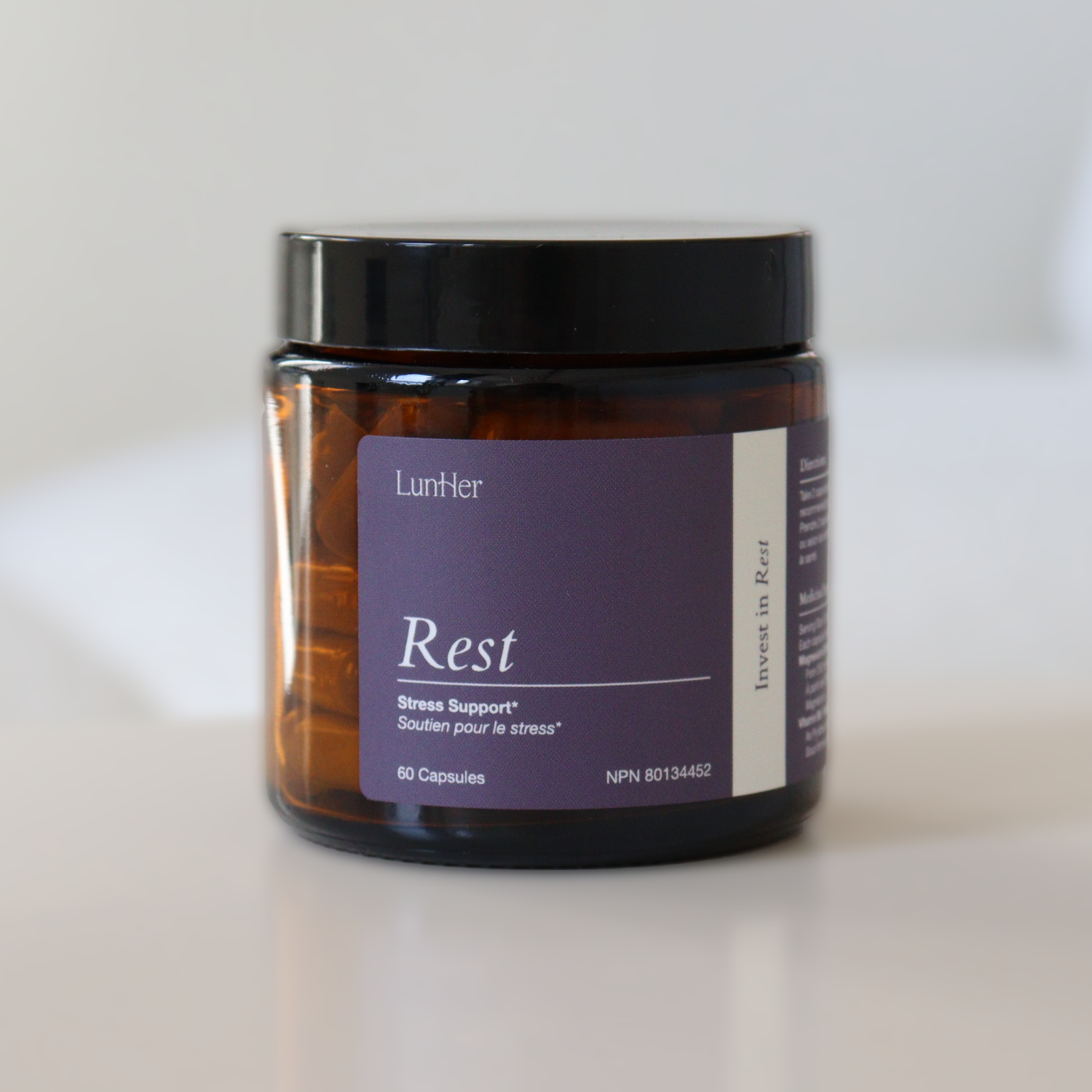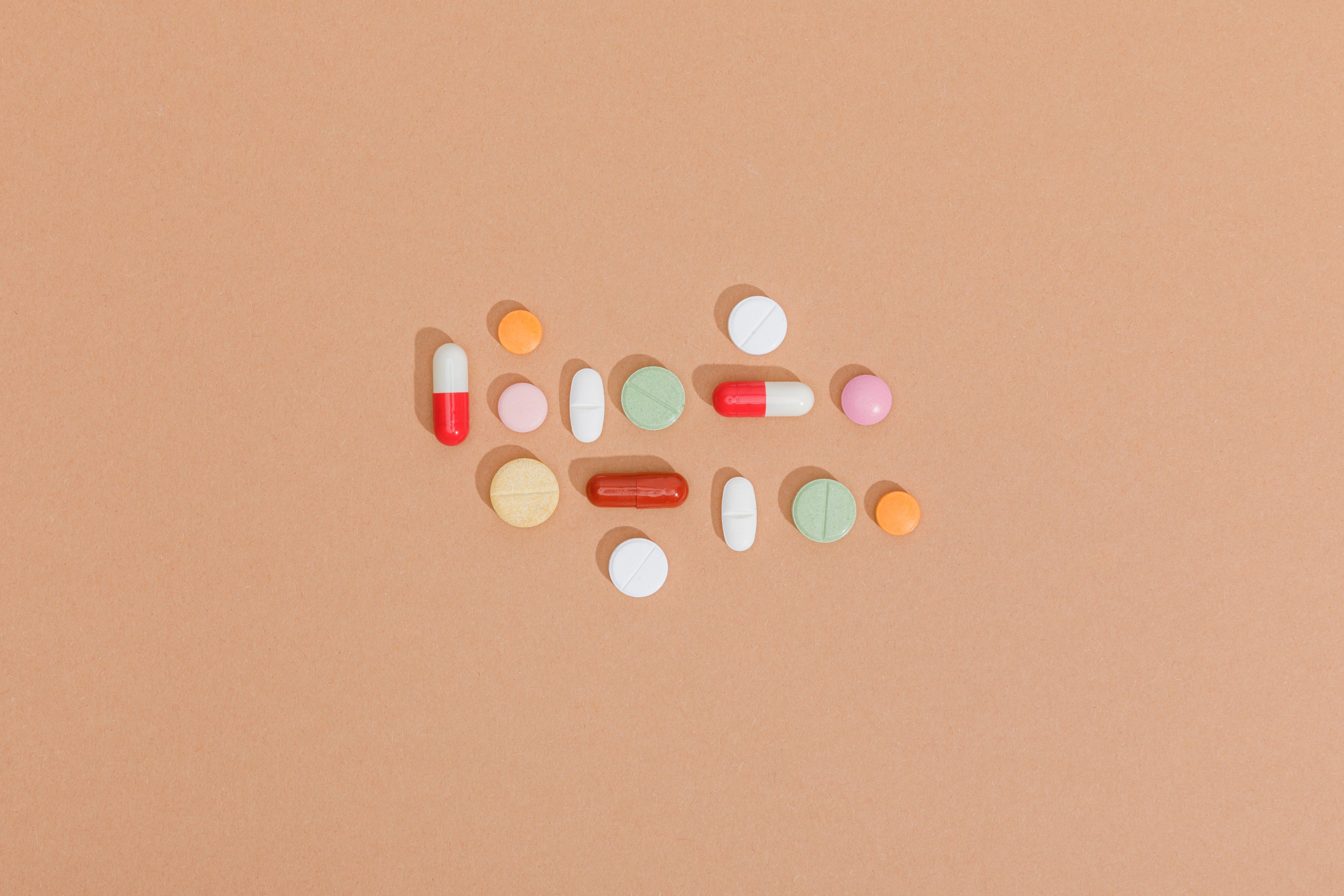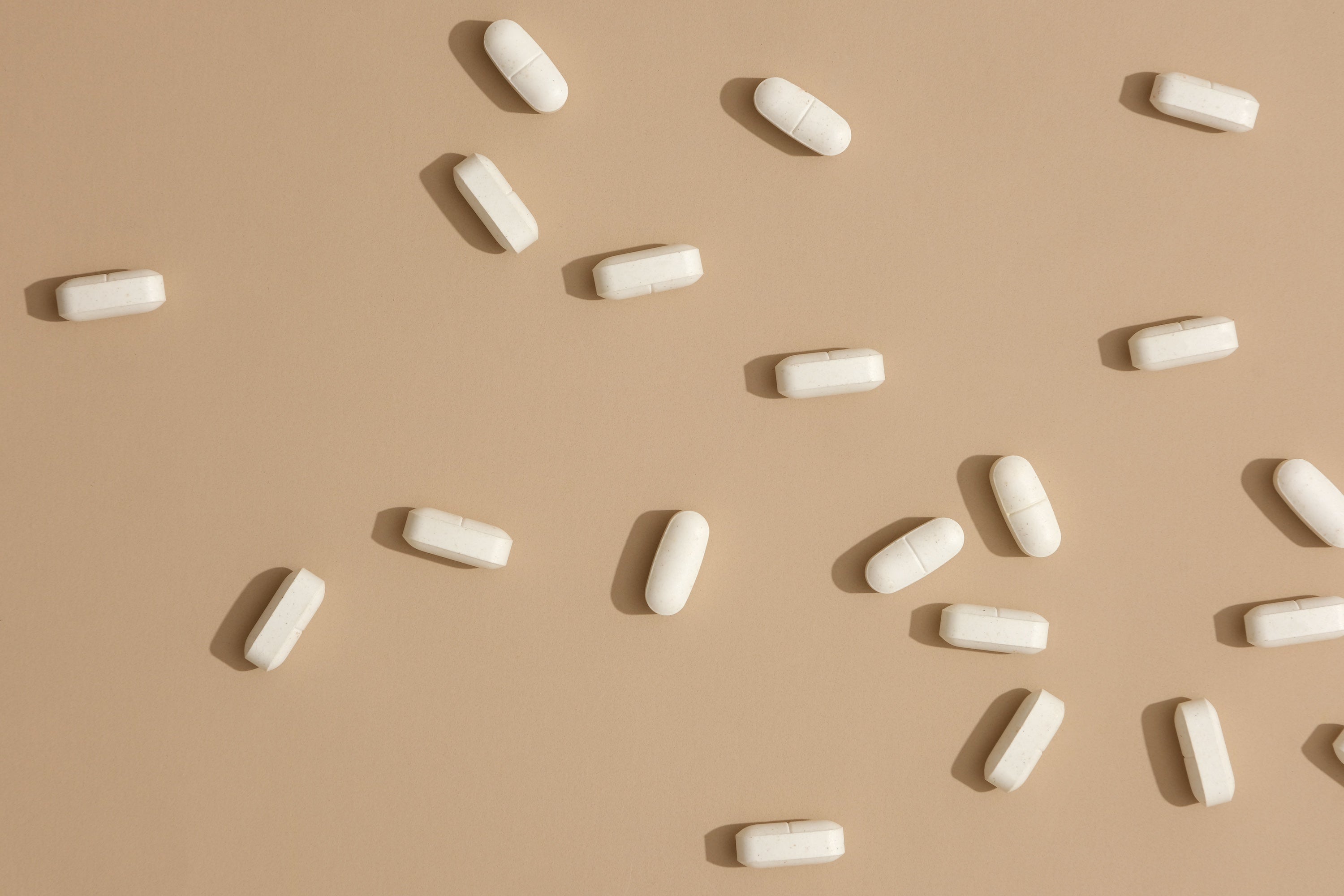
Does Vitamin B12 Really Boost Energy? Here’s What You Need to Know
If you’ve ever felt like you’re running on empty—even after a full night’s sleep—you’re not alone. Fatigue, brain fog, and low energy are common signals our bodies use to get our attention. You might have heard of Vitamin B12 but will taking some extra B12 really give you more energy? Let’s break down the science and simplify what you need to know about this essential nutrient.
The LunHer Take
Vitamin B12 is an essential nutrient that helps convert food into usable energy but it’s not a quick fix if you’re not deficient.
Your body doesn’t naturally produce Vitamin B12 so you need to get it through food or supplementation.
If you’re supplementing B12, look for active forms and avoid cheap, synthetic ones. Your body will more effectively absorb active forms of the vitamin.
What is Vitamin B12?
Vitamin B12 is one of the powerhouse nutrients our bodies depend on to convert the food we eat into usable energy. It plays a major role in nerve function, red blood cell production, and DNA synthesis. Our bodies don’t produce B12 on their own so it must be ingested through food or supplements. This can be tricky for people who follow a plant-based diet, have digestive issues, are pregnant, or are simply aging (because our absorption naturally decreases over time).
The general recommendation for adults is 2.4 micrograms per day. Your primary care physician may recommend a higher dosage if you are pregnant or breastfeeding, or if you are experiencing a vitamin B12 deficiency. When in doubt, talk to your doctor or a qualified health provider. Everyone’s journey is unique.
Vitamin B12 and Energy
Vitamin B12 plays a vital role in how our body metabolizes energy. An easy way to think of Vitamin B12 is as a key that helps unlock your energy stores. It helps produce hemoglobin, a protein in red blood cells that carries oxygen to your tissues. When oxygen delivery is low, your energy takes a hit. B12 also supports the production of red blood cells themselves—so if you're low on B12, your body may struggle to make enough. A low red blood cell count is clinically associated with symptoms of fatigue and lack of energy.
Because B12 is part of multiple energy-related cycles in the body, a clinical deficiency can leave us feeling exhausted. Supplementing B12 can absolutely help if you’re deficient but it’s not a magic energy pill if you’re already at healthy levels. Vitamin B12 works best when it’s taken with nutrients like iron, folate, and Vitamin B6.
Sources Of Vitamin B12
Vitamin B12 is found in a wide variety of foods. It’s found in many animal products, as well as some fortified foods. If you're vegan or vegetarian, B12 supplementation is often essential. It's nearly impossible to get enough from food alone.
Animal-based sources of B12
-
Beef liver
-
Clams
-
Salmon
-
Tuna
-
Beef
-
Milk
-
Yogurt
-
Cheese
-
Egg
Fortified foods with B12
-
Nutritional yeast
-
Dairy-free milks (check the label!)
-
Fortified cereals
Supplementing Vitamin B12
The best way to be sure you’re boosting your B12 intake is through supplementation. Look for active forms of B12 like methylcobalamin, adenosylcobalamin, and hydroxocobalamin. Your body will absorb them more efficiently than cyanocobalamin, a synthetic version.
Vitamin B12 Drinks
Energy drinks are a very popular way to boost energy levels. Some of them contain B12 but it is often the less-effective cyanocobalamin form. These drinks also tend to have either a high sugar content or a significant amount of artificial sweeteners for taste. This is something to be conscious of, as high sugar intake and artificial sweeteners can come with their own negative effects on health. The energy boost you feel from these drinks is most likely due to the caffeine and sugar combo, not the B12. If you’re choosing an energy drink, look for the active forms of B12 and make sure you’re reading the label.
Vitamin B12 Injections
B12 shots are typically used for people who are clinically deficient and have trouble absorbing B12 through digestion. These injections deliver B12 directly into the muscle or under the skin, bypassing your gut. If you’ve ever been diagnosed with a deficiency, your provider might suggest this route. The dosage may vary, but as these are prescribed, your doctor would provide a recommendation of the frequency of the shots and the appropriate dose.
Consuming Foods Rich in B12
Eating foods that are rich in B12 is a great way to naturally increase your B12 levels. However, once these foods are ingested, the body has to go through a number of processes to actually be able to absorb the B12 from those foods.
Some individuals may have genetic or immune-related issues that hinder the body’s ability to produce stomach acid, thereby diminishing the body’s ability to utilize B12 efficiently. Furthermore, aging and genetics can also impact how much B12 is digested and absorbed. For vegans, boosting B12 intake can be slightly more challenging given the absence of animal foods in their diet. To counter this, incorporating fortified foods like nutritional yeast and breakfast cereals, as well as taking vitamin B12 supplements, is recommended.
The Bottom Line
B12 is a quiet but powerful part of your wellness toolkit. It supports energy, focus, red blood cell production, and nervous system health—and it’s one of the key ingredients in our Rise supplement because we believe energy support should go beyond caffeine.
If you’re feeling burnt out, foggy, or flat-out done by 3 PM, consider checking in on your B12 levels. It might just be the nudge your body’s been asking for.

